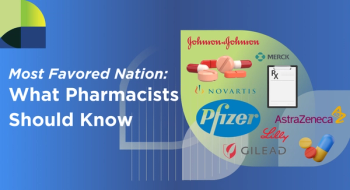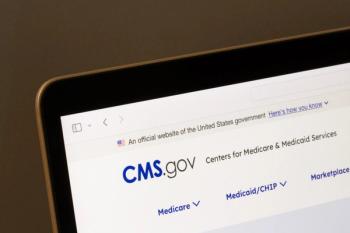
Hospital


Embedded pharmacy experts in neurology strengthen multiple sclerosis care through education, therapy selection, lab monitoring, and collaborative practice agreements that close gaps.

The platform offers uninsured patients discounted drug prices, though it is important to note that the platform does not sell drugs, and only a small number are currently available.

The scientific statement underscores obesity as a complex, socially driven condition and positions pharmacists as key partners in reducing stigma, improving access to care, and supporting equitable weight management.

Increased integration of pharmacists in veterinary practice reduces medication errors and improves safety, adherence, and client education.

In addition to increased prevalence, the age of diagnosis has also decreased.

India has confirmed 2 Nipah infections in West Bengal as surveillance tracks 196 contacts with no spread, with the World Health Organization outlining symptoms, transmission, and response measures.

Legislation targeting the practices of pharmacy benefit managers (PBMs) was passed by Congress and signed by the president, with the goal of greater transparency and increased pharmacy access.

MFN drug pricing ties Medicare payments to the lowest prices abroad, promising lower costs but sparking legal, access, and innovation concerns.

Study results suggest young participants who survived cancer have difficulty in areas such as memory, attention, and ability to process information compared with those who did not have cancer.

Phase 1 data show oral NSD2 inhibitor KTX-1001 delivers durable disease control in high-risk myeloma, with manageable thrombocytopenia and combo plans.

Craig Beavers is joined by the investigators of the POLY-HF trial to reinforce the critical role of pharmacist counseling and education in treating patients with heart failure.

A pharmacist-physician model significantly reduces wait times for atrial fibrillation care, enhancing patient access and treatment effectiveness in underserved areas.

Replacing animal products—particularly processed meats—with plant-based foods, including some processed options, can lower cardiometabolic risk and offer pharmacists practical counseling opportunities alongside medication therapy.

Explore all 16 agreements struck thus far between pharmaceutical companies and the White House to adhere to most favored nation pricing for drugs sold in the United States.

KTX-1001, a novel oral inhibitor of NSD2, demonstrates early clinical activity and manageable safety in heavily pretreated multiple myeloma.


The FDA cited human factors unrelated to the drug's efficacy as the reason for rejection.

A Defining Moment for Health System Pharmacy: Advancing Competency, Policy, and Patient Need in 2026
Pharmacists are transforming patient care in 2026, enhancing clinical outcomes through innovative practices and expanded responsibilities in health systems.

Exclusive insights from Ned Milenkovich, PharmD, JD, help parse what pharmacists should be aware of as most favored nation initiatives are agreed upon with the federal government.

Pharmacists should know about migraine treatments, such as lasmiditan, to effectively treat and educate patients with acute migraine.

RegeneCyte's HPC therapy shows promise in treating long COVID symptoms, with 85% of patients reporting fatigue relief.

The FDA approved the first dual-agent eye drops for presbyopia, offering a groundbreaking solution for age-related near vision loss.

Research data show that weight regain after discontinuation of GLP-1 or GLP-1/GIP agonists is a significant risk.

Shawn Riser Taylor, PharmD, CPP, CDCES, reflects on a research career shaped by a commitment to patient-driven inquiry and a passion for collaborative, learner-engaged projects.

CMS announces the selection of 15 high-cost drugs for Medicare price negotiations, aiming to reduce prescription costs for older adults and taxpayers.

Key updates include treatment thresholds, dietary recommendations, and management strategies.

David Shusterman, MD, reveals how reducing alcohol enhances GLP-1 therapy, improving insulin regulation, kidney health, and overall metabolic outcomes.

Updated guidelines on PA call for expanded screening, treatment, and monitoring, creating opportunities for pharmacists to screen all patients with hypertension.

GLP-1 receptor agonist effectiveness and tolerability can be significantly improved through targeted pharmacist counseling on alcohol reduction.
